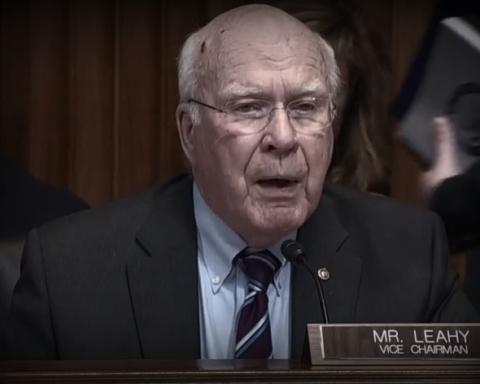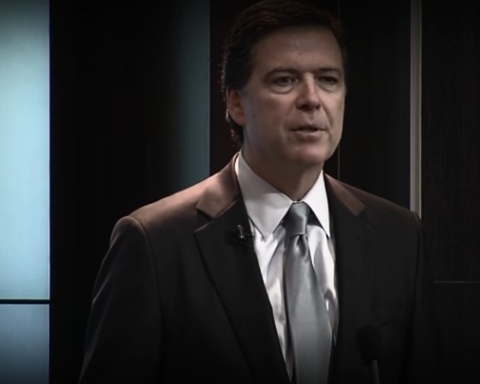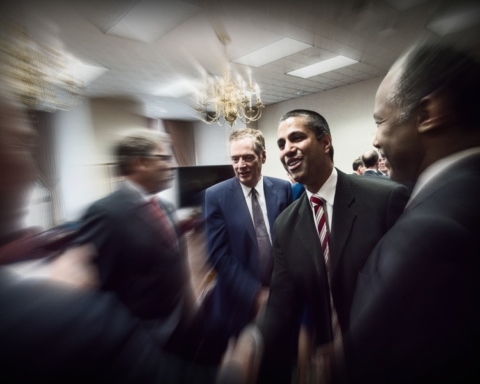President Obama on Wednesday afternoon will be making his case to the American people that locally-owned broadband networks should be allowed throughout the United States–an initiative that has put him on a collision course with the telecoms industry players, major right-wing think tanks, and at least one Republican Senator.
He will outline his plan at a speech in Cedar Falls, Iowa, a town of roughly 40,000 people with its own municipally-owned broadband system.
The network, the White House says, provides connectivity to Iowans as quickly and cheaply as internet service providers in major European and Asian metropolises. Major American cities like New York, San Francisco, Los Angeles and Washington D.C., however, are lagging behind.
“There are some steps we can take through executive actions that allow us to make sure every community can do what Cedar Falls is doing,” Obama said in a video posted Tuesday evening on the White House’s website.
The administration also touted publicly-owned broadband networks in Chattanooga, Tenn., Kansas City, Mo., Lafayette, La., and Wilson, N.C., as models, saying that they yield “internet speeds nearly 100 times faster than the national average and deliver it at an affordable price.”
“The reasons they can compete with these other world cities is because citizens got together and made the investment to bring competition in and make sure internet speeds were just as fast there as anywhere else,” the President said.
In order to allows this kind of public investment, the President said he intends to “formally oppose” laws that prevent municipal ownership of broadband networks. In a report underlying the new policy push, the administration pointed out that “19 states currently have barriers in place limiting community broadband and protecting incumbent providers from competition.”
“President Obama believes that there should be a level playing field for community-based solutions,” the report added.
While the initiative includes other possible forms of federal support for municipal broadband– a rurally-focused financing initiative tied to the Department of Agriculture, an inter-agency council and Department of Commerce-based plan to offer technical assistance–the focal point of the plan will be opposition to state laws outlawing public ownership of broadband.
The maintenance of those statutes is strongly supported by telecoms giants and many big businesses, and whether they violate federal law is being hotly deliberated by the Federal Communications Commission. Chattanooga’s publicly-owned utility and the city of Wilson have petitioned the FCC, asking it to invalidate parts of Tennessee and North Carolina laws that hinder their ability to expand their broadband networks.
In a comment on one of the petitions, AT&T said that government-owned networks “should not be utilized where the private sector is providing broadband or can be expected to do so in a reasonable timeframe.” The company also claimed that public networks “discourage private sector investment.” Joining them in opposition were corporate right-wing think tanks like the American Legislative Exchange Council, and the Koch brothers-backed Americans for Prosperity. The US Telecom Association–which features Verizon and AT&T executives on its board of directors–also voiced its displeasure with the municipal effort to preempt state laws.
Some prominent Republicans have also already come out in opposition to the expansion of Wilson’s and Chattanooga’s networks. A public comment from freshman Sen. Thom Tillis (R-N.C.)–North Carolina Speaker of the House when he filed his opinion in 2014–featured among those opposing the Wilson petition. The chief of staff to Republican FCC Commissioner Ajit Pai has also said he supports state bans on municipal ownership.
Not all major businesses and telecoms lobbyists opposite FCC preemption of the state restrictions on municipal broadband, however. Netflix and the Telecommunications Industry Association said they back the partial repeal of the statutes in question.
President Obama, in accordance with his plan, will likely join their outreach. The administration said it will reach out to the FCC “to join this effort by addressing barriers inhibiting local communities from responding to the broadband needs of their citizens.” The comment period for the two cases is still open.
In a previous editorial, The Sentinel has argued that municipal broadband could reduce the percentage of Americans without high-speed internet connection–a proportion that grows significantly as income shrinks.





